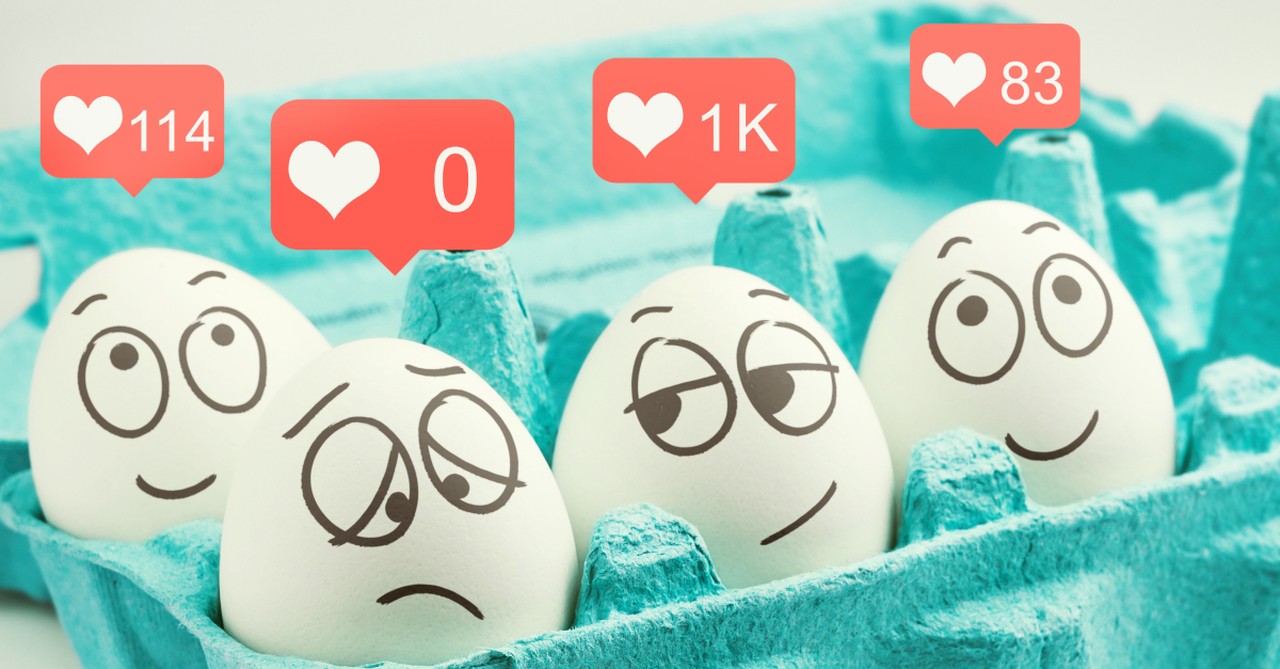10 Reasons Why Depression Is on the Rise

Over the past decade, I’ve shared with thousands of patients as well as publicly when I’ve written or been asked to speak on mental health issues, that “depression will be our greatest epidemic worldwide by 2020.” Now that we’ve reached that year, we’ve seen this prediction is accurate. Depression has been on the rise over the past several decades.
In private practice, as a board-certified clinical neuropsychologist, I’ve evaluated, diagnosed, and treated thousands of patients for a variety of mental health disorders. Perhaps the most consistently surprising diagnosis for patients to receive was that of depression.
But after diagnosis and explanation of what depression is, and where it comes from, most were relieved. Because they knew something was wrong...but they didn’t have a label for it. With diagnosis came greater understanding and the possibility of treatment and an improved life.
Now that we are seeing such an increase in depression, it begs the question, “why is depression on the rise?” Here are 10 reasons to consider:
Photo Credit: ©GettyImages/Sam Thomas
1. Sophisticated Diagnostic Tools

1. Sophisticated Diagnostic Tools
SLIDE 1 OF 5
Medical and mental health practitioners now have more sophisticated diagnostic tools to help us diagnose mental health disorders (including depression) more quickly and accurately.
As our understanding of the body and the mind have improved with better study and research, we’ve been able to develop better diagnostic tools which improves the speed and accuracy of diagnosis.
Over time, we’ve gained more wisdom and discernment which has aided in the diagnosis and treatment of depression.
If you need wisdom, ask our generous God, and he will give it to you. He will not rebuke you for asking – James 1:5 NLT
2. Less Stigma, More Willingness to Seek Help
As the stigma around mental health issues has decreased, more are willing to seek professional help. Our understanding and knowledge of the incidence of mental health disorders is based on those who seek help.
It’s difficult to have an accurate estimate of those who struggle when our statistics are derived from those who seek out diagnosis and treatment as opposed to the many who don’t.
So in some respects, it isn’t necessarily that depression has risen as much as it is that people suffering from depression are more likely to seek help.
Plans fail for lack of counsel, but with many advisers they succeed – Proverbs 15:22
Photo Credit: ©GettyImages/Fizkes
3. Early Detection and Ability to Help Children

3. Early Detection and Ability to Help Children
SLIDE 2 OF 5
Early on in my career, I rarely saw a child for diagnosis and/or treatment who suffered from depression unless they were going through (or had gone through) a particularly traumatic event.
As we are better equipped to diagnose and treat children with depression, and more parents are willing to seek mental health treatment for their children, we have seen a corresponding rise in overall depression.
Earlier detection is crucial for the best prognosis, and more parents are now willing to seek help for this younger generation. Sometimes depression in children can be related to generational issues, sometimes due to modeling within the home, and at other times it is in response to unique stressors.
You shall not bow down to them or worship them; for I, the LORD your God, am a jealous God, punishing the children for the sin of the parents to the third and fourth generation of those who hate me. – Exodus 20:5
4. Social Isolation
Social isolation contributes to depression. It’s fairly universal that people are created with a longing to be seen, heard, accepted, and loved. Yet isolation makes it difficult for any of those needs to be met.
Recent events have made it particularly difficult for people to have their socialization needs met in a healthy way, especially children and seniors. When we’re isolated, we tend to be left alone for our thoughts to wander, and often to unhealthy or untrue places. Internal dialogues like “I’m all alone,” “Nobody understands or cares,” “Life will never get better” tend to bombard our thinking.
Our feelings are often the outward manifestation of the thoughts we believe, so when we have thoughts like these, it’s no surprise when depression follows.
Let us think of ways to motivate one another to acts of love and good works. And let us not neglect our meeting together, as some people do, but encourage one another, especially now that the day of his return is drawing near. – Hebrews 10:24-25
Photo Credit: ©GettyImages/KatarzynaBialasiewicz
5. Prolonged Stressors

5. Prolonged Stressors
SLIDE 3 OF 5
Prolonged stress can contribute to depression. When we experience an emergency, God gave us a built-in reflexive response, otherwise known as the “fight or flight mechanism.” This reflex was intended to help us in a momentary state of emergency like during a home burglary or when coming upon a wild animal in the wild.
During fight or flight, our brain releases cortisol into our system to help us respond quickly to the emergency. Part of the problem is that our brains were never designed to manage sustained and prolonged stress. A constant cortisol drip from prolonged stress can contribute to depression.
Therefore do not worry about tomorrow, for tomorrow will worry about its own things. Sufficient for the day is its own trouble. – Matthew 6:34
6. The Western Diet Heavy in Processed Foods
Over the last couple of generations, we have moved further away from the natural foods God gave us to grow in the ground and more towards a diet of processed foods. Concurrently, we’ve seen a significant increase in mental health disorders including depression.
When we don’t eat a healthy and nutritious diet that supports brain health, we make it difficult for our brain to engage in emotional regulation to keep depression and anxiety at bay.
And God said, “Behold, I have given you every plant yielding seed that is on the face of all the earth, and every tree with seed in its fruit. You shall have them for food. – Genesis 1:29
7. Overstimulation of Overconnectivity
We live in a world now where we tend to be both overconnected and overstimulated. By living in such a largely digital age, all ages of individuals are spending excessive amounts of time connecting digitally, often to the detriment of in-real-life relationships. With news from around the world ready at our literal fingertips, we run the risk of being overstimulated and oversaturated with too much information and inadequate means to filter out the unimportant from the crucial.
But seek first his kingdom and his righteousness, and all these things will be given to you as well. – Matthew 6:33
Photo Credit: ©GettyImages/CentralITAlliance
8. Comparison

8. Comparison
SLIDE 4 OF 5
Being overconnected also brings about an increased tendency toward comparison with others. Too often we fail to realize that others’ posts are just their highlight reels, with perfectly posed Christmas-card-esque family photos and newsworthy accomplishments.
It’s easy to fall prey to comparing our backstage preparation with others’ highlight reel, which often results in decreased self-esteem and increased depression.
Not that we dare to classify or compare ourselves with some of those who are commending themselves. But when they measure themselves by one another and compare themselves with one another, they are without understanding. – 2 Corinthians 10:12
9. Increased Sleep Disturbance
Often related to our ready access to digital information is our tendency to sacrifice sleep while spending time searching out the latest news or connecting with friends online. Sleep disturbance, either too much (hypersomnia) or too little (insomnia) is often both a symptom of depression as well as a contributing cause of depression.
In prior generations, the day ended when the sun went down and it didn’t begin again until the sun came up the next day. But in today’s society, sleep is often sacrificed at the ready “ping” of notifications on smartphones, tablets, and computers.
When you lie down, you will not be afraid; when you lie down, your sleep will be sweet. – Proverbs 3:24
Photo Credit: ©GettyImages/TanyaJoy
10. Looking to the World Rather Than God for Identity

10. Looking to the World Rather Than God for Identity
SLIDE 5 OF 5
Another notable contributor to depression is our tendency to look to the world to fulfill in us what we were never meant to control. There is often the tendency to base our worth on our roles in life: child, spouse, parent, employee. The problem with that, however, is that when something happens to change one of our roles, we are left wondering who we are and what value we bring to life.
In these uncertain times, there is even less within our direct control than we may have previously thought. Many are facing health compromise, others have lost jobs or are unable to find employment, friends, and family members are in discord over policies and politics, etc.
When we look to the wrong place for our identity and worth, our loss of control often leads to a rise in depression.
Therefore, if anyone is in Christ, he is a new creation. The old has passed away; behold, the new has come. – 2 Corinthians 5:17
While there has been a notable rise in depression, it’s important to note that depression is treatable. Fewer than half of those who suffer with depression, however, seek treatment.
Appropriate diagnosis and treatment are crucial for the best prognosis. The best form of treatment will address mind, body, and soul. The word of God has much hope to offer for those who suffer.
Photo Credit: ©Unsplash/Wang Xi

Originally published August 25, 2020.






